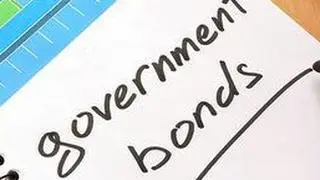The India-UK Free Trade Agreement (FTA) is clearly set to miss the ambitious Diwali deadline but the Commerce Department has stepped up internal consultations for greater clarity on where things stand in tricky areas, such as duty cuts for automobiles and wines, e-commerce, government procurement, visas and new areas such as labour, environment and gender.
The preparations are on, despite the politically charged situation in London — where UK Prime Minister Liz Truss is fighting calls for her resignation — as there is no conceivable threat to the Indo-UK trade talks which has wide-based support, sources told businessline.
‘Watching closely’
“We are watching the political developments in the UK closely. We don’t know whether PM Narendra Modi will be meeting his UK counterpart next month, virtually or in-person, but officials want to be prepared with India’s response on all contentious issues, in case an announcement around the negotiations is to be made,” said a source.
Not only are internal meetings happening in the Commerce & Industry Ministry, discussions are also taking place at the “higher level” to understand how much compromise and adjustments will be politically acceptable, the source added.
The proposed FTA, which is expected to double bilateral trade to $100 billion by 2030, could set the tone for India’s future negotiations with other nations as for the first time the country is considering substantial lowering of tariffs for its highly protected automobile sector and focus on areas such as government procurement, e-commerce, labour, environment and gender.
Pressure for lowering of import duties on wines and spirits, including Scotch Whisky, is also high but India has already made a start in the area by committing to lower tariffs on wines in its free trade pact with Australia.
Lots to be done
“While the fight for low duties on automobiles and Scotch will continue right till the end, positions have to be established conclusively in areas such as digital trade, government procurement, labour, environment and gender. In the areas of labour and environment, the government believes that it has unilaterally achieved enough and the free trade pact will not pose a problem but in other areas strong commitments need to be avoided,” the source added.
For India, apart from greater market access for labour intensive items such as garments and textiles, leather and foot wear, agriculture and processed food and tobacco, it is also important that it gains some concessions in the area of work visas. “Although the UK Home Secretary made some adverse comments recently on visa overstayers, it has no direct connection with the FTA talks,” the source said.







Comments
Comments have to be in English, and in full sentences. They cannot be abusive or personal. Please abide by our community guidelines for posting your comments.
We have migrated to a new commenting platform. If you are already a registered user of TheHindu Businessline and logged in, you may continue to engage with our articles. If you do not have an account please register and login to post comments. Users can access their older comments by logging into their accounts on Vuukle.